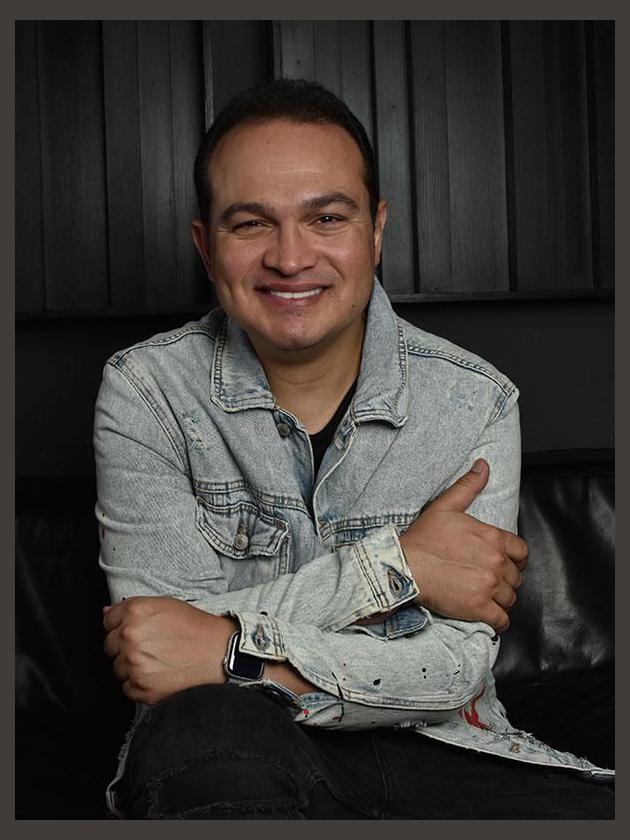 Davi Sacer
Davi Sacer
Davi Sacer: A Journey of Faith, Controversy, and Undying Music
Early Life and Musical Roots:
Born in Rio de Janeiro, Davi Sacer embarked on his musical journey from an early age. Inspired by the gospel melodies of his youth, he honed his vocal skills through church choirs and local performances.
The Formation of Davi Sacer Band:
In 2003, Sacer joined forces with veteran musicians André Valadão, Luiz Arcanjo, and Ronald Fonseca to form the Davi Sacer Band. Their debut album, "Ao Vivo no Rio," propelled them to prominence within the Brazilian gospel scene.
Challenges and Controversies:
The band's success was accompanied by challenges and controversies. In 2005, Sacer's departure from the evangelical church sparked intense debate. His decision to leave raised questions about his faith and the boundaries of Christian music.
Signature Sound and Thematic Exploration:
Despite the controversies, Davi Sacer Band continued to produce music that resonated with audiences on a deep level. Their signature blend of pop, rock, and worship anthems explored themes of faith, hope, and the transformative power of God.
Discography and Hit Songs:
Over the years, Davi Sacer Band released a series of critically acclaimed albums, including "Restitui," "Deus de Promessas," and "Confio em Ti." Their iconic song "Deus de Promessas" became a national anthem of hope and resilience.
Members and Collaborative Projects:
The band's lineup has evolved over time, with Sacer remaining the constant frontman. Other notable members have included André Valadão, Thalles Roberto, and Leonardo Gonçalves. They have also collaborated with renowned artists such as Aline Barros and Fernandinho.
Impact and Legacy:
Davi Sacer's music has transcended religious boundaries, touching the lives of countless individuals. Their songs have provided solace during moments of adversity, inspired hope in times of doubt, and celebrated the transformative power of faith.
Current Status and Future Endeavors:
Although Davi Sacer Band officially disbanded in 2012, Sacer continues to perform as a solo artist. He remains an influential figure in the Brazilian gospel scene, using his platform to spread messages of faith, love, and unity.
Early Life and Musical Roots:
Born in Rio de Janeiro, Davi Sacer embarked on his musical journey from an early age. Inspired by the gospel melodies of his youth, he honed his vocal skills through church choirs and local performances.
The Formation of Davi Sacer Band:
In 2003, Sacer joined forces with veteran musicians André Valadão, Luiz Arcanjo, and Ronald Fonseca to form the Davi Sacer Band. Their debut album, "Ao Vivo no Rio," propelled them to prominence within the Brazilian gospel scene.
Challenges and Controversies:
The band's success was accompanied by challenges and controversies. In 2005, Sacer's departure from the evangelical church sparked intense debate. His decision to leave raised questions about his faith and the boundaries of Christian music.
Signature Sound and Thematic Exploration:
Despite the controversies, Davi Sacer Band continued to produce music that resonated with audiences on a deep level. Their signature blend of pop, rock, and worship anthems explored themes of faith, hope, and the transformative power of God.
Discography and Hit Songs:
Over the years, Davi Sacer Band released a series of critically acclaimed albums, including "Restitui," "Deus de Promessas," and "Confio em Ti." Their iconic song "Deus de Promessas" became a national anthem of hope and resilience.
Members and Collaborative Projects:
The band's lineup has evolved over time, with Sacer remaining the constant frontman. Other notable members have included André Valadão, Thalles Roberto, and Leonardo Gonçalves. They have also collaborated with renowned artists such as Aline Barros and Fernandinho.
Impact and Legacy:
Davi Sacer's music has transcended religious boundaries, touching the lives of countless individuals. Their songs have provided solace during moments of adversity, inspired hope in times of doubt, and celebrated the transformative power of faith.
Current Status and Future Endeavors:
Although Davi Sacer Band officially disbanded in 2012, Sacer continues to perform as a solo artist. He remains an influential figure in the Brazilian gospel scene, using his platform to spread messages of faith, love, and unity.